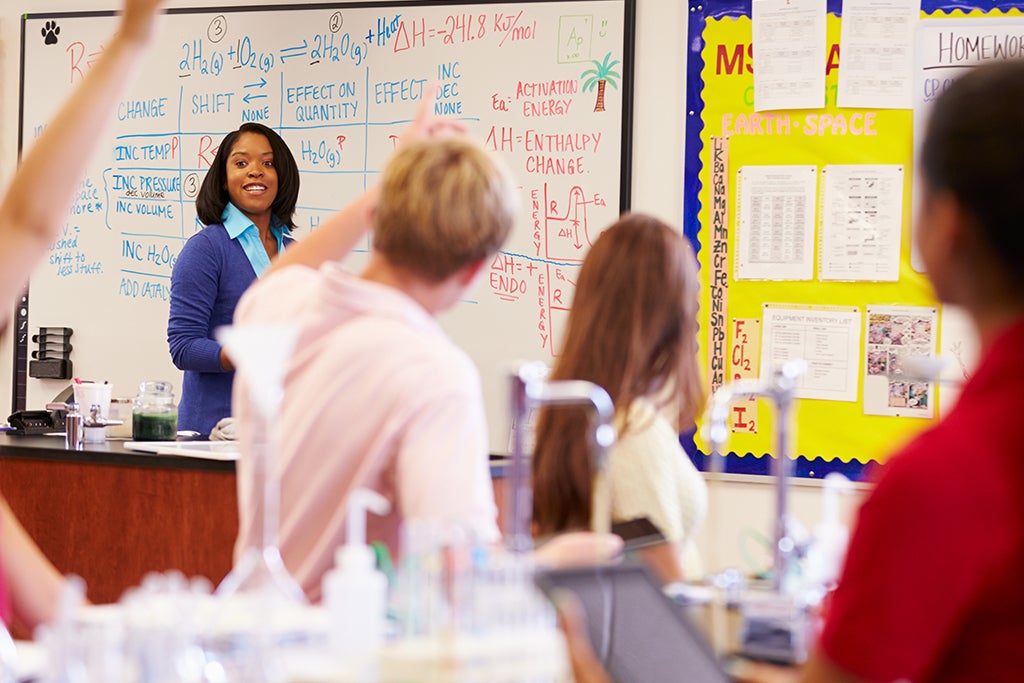Chemistry I + Lab
Principles of Chemistry I
Introduction to Chemical Practices I
4 College Credits (3 for lecture, 1 for lab) | UT Course Codes: CH 301, CH 104M | TCCN Courses: CHEM 1311, CHEM 1111 | Core Code: 030
High School Course Prerequisite: Algebra I

Experiment like a scientist to explore theoretical foundations of chemistry.
In this lecture and lab course duo, students learn about the nature of matter and energy in the physical world; find connections between scientific concepts and real-world experiences; produce intuitive arguments; and support their arguments with quantitative measures.
The lecture portion of Principles of Chemistry I addresses the nature of matter, energy, chemical reactions and chemical thermodynamics. The Introduction to Chemical Practice I lab component explores these topics through hands-on experiments, group work and simulations.
Course Structure
This course utilizes Flipped Learning to support students in getting organized around mastery and ownership of materials. They learn how to successfully study science and develop basic laboratory and analytical skills.
Big Ideas
- Atoms
- States of matter
- Chemical bonding
- Thermodynamics
What Students Gain
- College-level laboratory skills
- Development of scientific reasoning and literacy
- New learning and study skills to master content

What Students Say
“I now have more knowledge than ever in chemistry. I will apply this knowledge to the college courses I will take in the future. Now I know how difficult the coursework is and what I must study to succeed.”
